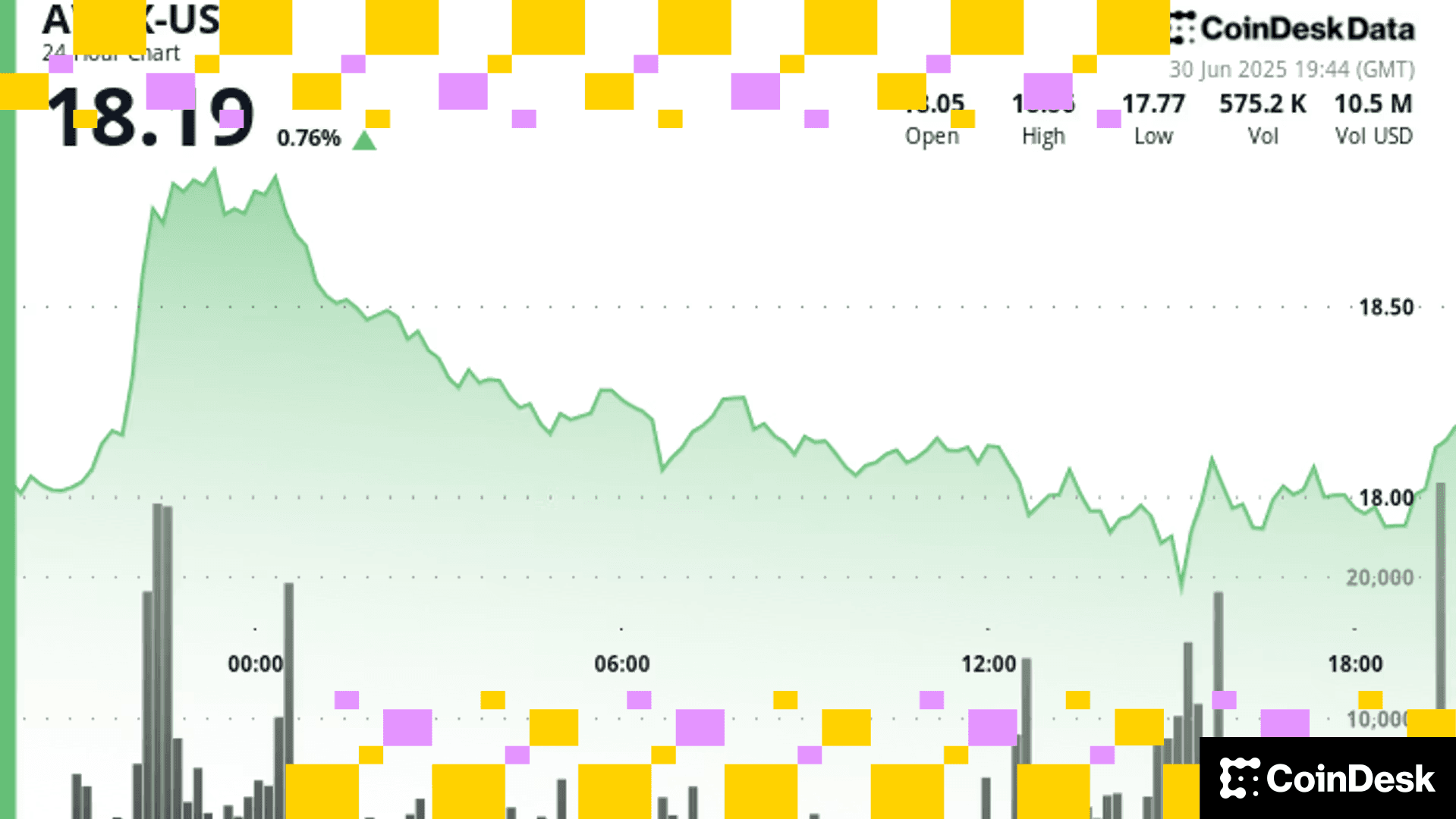U.S. Senate Takes First Big Step to Advance Stablecoin Bill
The first committee approval of a stablecoin bill in this new congressional session now moves the so-called GENIUS Act toward the Senate floor.

What to know:
- The U.S. Senate Banking Committee cleared a bill to regulate stablecoin issuers, passing it 18-6.
- With that first committee approval, stablecoin oversight is a significant step closer to law in the U.S., though it still needs to make a similar advance in the House of Representatives, then needs to be cleared by both chambers in floor votes.
The U.S. Senate Banking Committee has advanced the crypto industry's stablecoin regulation bill, a first major step toward getting the effort to President Donald Trump's desk to be signed into law.
With its first committee approval, the bill that would regulate U.S. stablecoin issuers at the federal level now needs passage by the overall Senate, and a similar version also awaits approval in the House of Representatives. While a number of hurdles remain, including an eventual melding of the different bills from each chamber, the committee advanced the bill with a 18-6 vote.
Many Democrats on the committee acknowledged the need for the bill while also seeking to add a number of amendments to add additional regulatory controls and limits, each of which was shot down with partisan votes.
Senator Elizabeth Warren, the panel's ranking Democrat, led her colleagues' objections against certain provisions of the bill, which she said marks "a clear threat to our national security" in its current form. Warren grew increasingly frustrated over the course of the 2.5-hour hearing as each of her proposed amendments to the bill were rejected.
“It would be crazy to advance this bill when it’s got so many holes in it that have been pointed out, and to advance it at the exact moment that news is breaking about Donald Trump trying to create his own stablecoin with an outfit that is notorious for breaking the law,” Warren said near the end of the hearing, referring to reporting that the Trump-linked World Liberty Financial had been in talks with crypto exchange Binance. “Jamming this through while Donald Trump is out there making a deal with a criminal stablecoin platform makes no sense. We will regret this.”
Another Democrat, Catherine Cortez Masto of Nevada, complained that committee Republicans were blowing off debate during the markup — a type of hearing meant to consider and discuss amendments to a piece of moving legislation — and a number of them weren't showing up at the hearing.
"It is a great start, but it is not ready for prime time," the senator said of the Republican-driven bill.
"Markups are messy," said panel Chairman Tim Scott, a South Caroline Republican, in response. "We've been working nights, days, weekends to get this accomplished."
Senate Bill Hagerty, the Tennessee Republican who was the legislation's primary author, called the Guiding and Establishing National Innovation for U.S. Stablecoins Act (GENIUS Act) a "truly bi-partisan effort" that had taken on Democratic input. Democrats Kirsten Gillibrand of New York and Angela Alsobrooks of Maryland? cosponsored the bill, alongside a number of Hagerty's fellow Republicans.
"It presents common sense rules that protect consumers, promote competition, and foster innovation," Hagerty said. "It’s time we provide the clarity and stability that our country and its innovators so desperately need."
The crypto industry is counting on an increasingly strong majority of lawmakers in both chambers to back its policy efforts this year. So far this month, a separate effort to remove an Internal Revenue Service rule opposed by the crypto sector won wide bipartisan votes.
Read More: Crypto's IRS Victory Reveals Reach in Congress That Demands Less Compromise
It was the Democratic-majority Senate Banking Committee in the previous Congress that held back crypto legislation that had advanced in the Republican-led House. The 2024 elections put Republicans in charge of both chambers, and Scott has made stablecoin legislation one of his top opening priorities.
More For You
Exchange Review - March 2025

CoinDesk Data's monthly Exchange Review captures the key developments within the cryptocurrency exchange market. The report includes analyses that relate to exchange volumes, crypto derivatives trading, market segmentation by fees, fiat trading, and more.
알아야 할 것:
Trading activity softened in March as market uncertainty grew amid escalating tariff tensions between the U.S. and global trading partners. Centralized exchanges recorded their lowest combined trading volume since October, declining 6.24% to $6.79tn. This marked the third consecutive monthly decline across both market segments, with spot trading volume falling 14.1% to $1.98tn and derivatives trading slipping 2.56% to $4.81tn.
- Trading Volumes Decline for Third Consecutive Month: Combined spot and derivatives trading volume on centralized exchanges fell by 6.24% to $6.79tn in March 2025, reaching the lowest level since October. Both spot and derivatives markets recorded their third consecutive monthly decline, falling 14.1% and 2.56% to $1.98tn and $4.81tn respectively.
- Institutional Crypto Trading Volume on CME Falls 23.5%: In March, total derivatives trading volume on the CME exchange fell by 23.5% to $175bn, the lowest monthly volume since October 2024. CME's market share among derivatives exchanges dropped from 4.63% to 3.64%, suggesting declining institutional interest amid current macroeconomic conditions.
- Bybit Spot Market Share Slides in March: Spot trading volume on Bybit fell by 52.1% to $81.1bn in March, coinciding with decreased trading activity following the hack of the exchange's cold wallets in February. Bybit's spot market share dropped from 7.35% to 4.10%, its lowest since July 2023.
More For You











